Graham Reid | | 4 min read
Lou Reed: Kicks
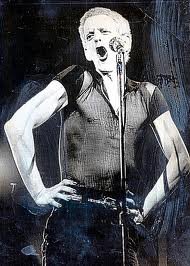
Pity anyone coming new to Lou Reed these days and wondering where to start: there is that Velvet Underground catalogue (brilliant start, diminishing returns), a couple of dozen albums under his own name, almost a dozen live albums (Rock'n'Roll Animal essential, Take No Prisoners hilarious as Lou becomes beligerent stand-up) and a bunch of other odds'n'ends.
A greatest hits (of a man who had so few "hits") is probably the way to start . . . but which of the many greatest hits/compilations/best of things?
Okay, his five albums between '72 and '75 (skipping Metal Machine Music and Rock'n'Roll Animal) have been repacked in facsimile covers for the series Original Album Classics, and they are albums from what seem, for many at this distance from the period, to be -- aside from Transformer -- Reed's Lost Years.
He was certainly lost for some of them.
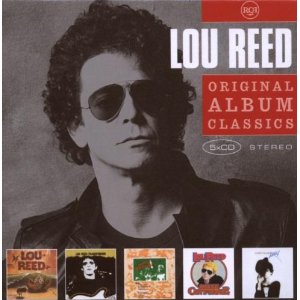 These are rarely "classic" as the package suggests, but they certainly cover a lot of ground. They are his self-titled post-VU debut, an expanded version of Transformer, the bleak but often brilliant Berlin where he really established his poetry/dramatic credentials, Sally Can't Dance and Coney Island Baby.
These are rarely "classic" as the package suggests, but they certainly cover a lot of ground. They are his self-titled post-VU debut, an expanded version of Transformer, the bleak but often brilliant Berlin where he really established his poetry/dramatic credentials, Sally Can't Dance and Coney Island Baby.
Say what you like about Reed, but he was certainly productive in these few years and if the returns were sometimes thin (that self-titled outing especially where he had to draw on unreleased VU songs, unreleased because they weren't much cop) then at other times you feel some songs certainly deserve a fair re-hearing.
Things had got off to bad start for the first album when Reed arrived at the studio to find his band included prog-rock keyboard players Rick Wakeman and Tony Kaye, Caleb Quaye from Elton John's band and guitarist Steve Howe. Despite being credited with guitar (and Reed's guitar work is as distinctive as Neil Young and Hendrix's) there's barely a note of it.
The album was widely dismissed or damned (sometimes with faint praise) and, according to Victor Bockris' Reed biography it only sold 7000 copies, "an embarrassing number in an industry where 50,000 - 100,000 was considered reasonable".
Transformer of late '72 -- co-produced by David Bowie and Spiders From Mars guitarist Mick Ronson -- is where the solo career really begins after that faltering first step. On the cover photo by Mick Rock, Reed was looking cool but glam and clearly also sounding influenced by Bowie who again produced with Ronson. (Tim Curry did a "bitch stole my look" thing when adopting Reed's image for his role in The Rocky Horror Picture Show)
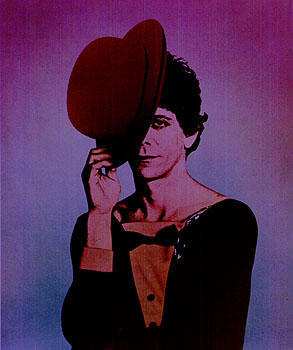 This was Reed's breakthrough with Walk on the Wild Side (which he didn't want released as a single because he thought it would be banned and so, like Velvets songs, go unheard). There is also the beautiful but chilly Perfect Day, Satellite of Love and solid songs like Vicious, Andy's Chest and I'm So Free. (The reissue here comes with acoustic demos of Hangin' Around and Perfect Day, the latter closing with an off-the-cuff whoop.)
This was Reed's breakthrough with Walk on the Wild Side (which he didn't want released as a single because he thought it would be banned and so, like Velvets songs, go unheard). There is also the beautiful but chilly Perfect Day, Satellite of Love and solid songs like Vicious, Andy's Chest and I'm So Free. (The reissue here comes with acoustic demos of Hangin' Around and Perfect Day, the latter closing with an off-the-cuff whoop.)
Not every critic hailed Transformer. Ellen Wills in the New Yorker considered it "terrible, pseudo-decadent lyrics, lame, pseudo-something-or-other-singing, and a just plain lame band". The point about the band is interesting as Reed has often worked best with a tight unit (as he would do in later years) but again here he had studio players (among them longtime Beatle offsider bassist Klaus Voorman).
Berlin which followed drew howls of condemnation on release and although Reed always believed in it -- a concept song cycle of bleak proportions -- it was damned. Reed fan Lester Bangs said it was "a gargantuan slab of maggoty rancour that may well be the most depressing album ever made". Time has been more kind and a story about "a druggy bi slut who gets her children taken away" (thanks Village Voice) it seems less sleazy and more dramatic today.
Berlin -- which has been staged and filmed by artist Julian Schnabel with Reed, has grown in stature, although it's an easy proposition (see here). This is a full consideration at Elsewhere here under our Essential Elsewhere album pages..
Its commercial failure meant Reed had to go on the road (and record that terrific Rock'n'Roll Animal, more of that sometime) but came back to the studio for Sally Can't Dance ("I slept through Sally Can't Dance," said Reed later, admitting his drug habit had himn nodding off). But it became his biggest selling solo album. Despite that, it is one of the lost albums in Reed's catalogue for most and worthy of discovery . . . even though he hates it. ("tedious, a piece of shit").
The rather better Coney Island Baby is the final in this collection while some hailed it as cinematic, decadent, European and in tune with the times (gay liberation) others dismissd it as forced and just plain silly (Charley's Girl is such a re-run at Walk on the Wild Side you can't help but smile dismissively.
But the title track (another about a drag queen) and the hate-filled Kicks -- an interesting production with people speaking in the background -- really nails the drug scene he was inhabiting. The expanded edition here also includes his snaky and eerie Downtown Dirt.
Had these albums been more consistent this article would have appeared in our Bargain Buy pages (because this cheap collection is just $20 at JB Hi-Fi stores here) but they are too uneven. Better would come from Lou Reed, and the Original Album Classics picks that end up with greater musical returns on his subsequent solo albums . . . although most of those albums were even more "lost" on listeners.
Lou Reed in the Seventies? Sample selectively.
There is much more about Lou Reed's long and diverse solo career here. And the Velvet Underground here.

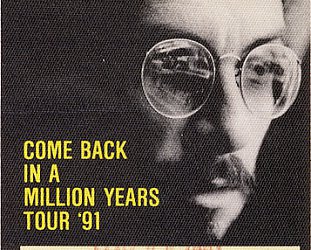

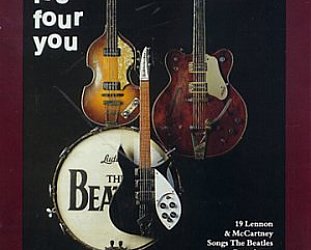
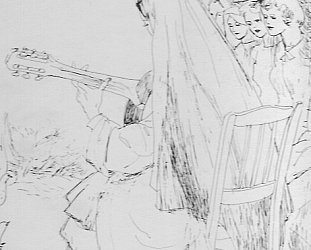
post a comment